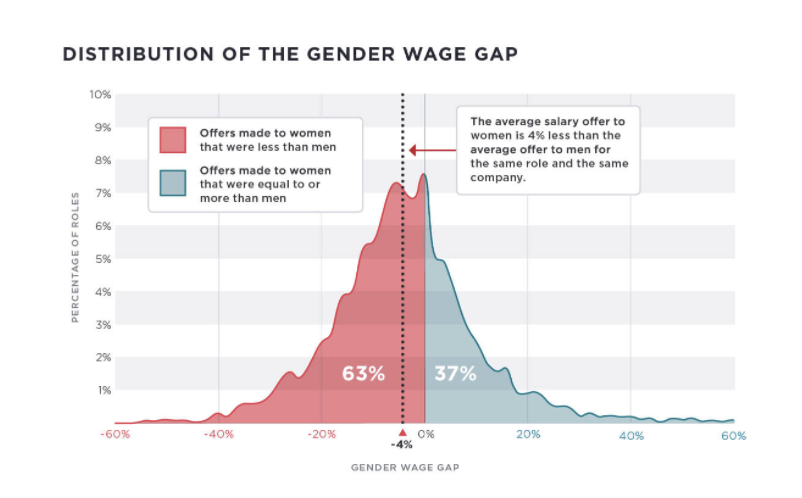
Can Generation Z Close the Wage Gap?
Some 50 years ago, the Women’s Liberation Movement brought the issue of equal pay and equal opportunity to the forefront of public awareness, and attempted to empower women in the workplace. Since then many strides have been made in advancing this issue. The US labor force is now 59% female and a greater number of entrepreneurs than ever are women. Also, thanks to more flex-time options and increased freelance and remote work opportunities, women can set schedules that are more compliant with their individual needs.

All that said, the issue of pay equality continues to plague the modern workplace even today, as evidenced by the fact that the gender wage gap is not expected to close until 2152. In order to bring greater awareness to this issue, the National Committee on Pay Equity created Equal Pay Day, which is a symbolic recognition of how far into the year women must work in order for their earnings to reach parity with what men earned the previous year.
Unconscious Bias and Lower Expectations
In honor of the most recent Equal Pay Day, everyone from politicians to celebrities to business leaders weighed in on the state of the wage gap, organizations like the Pew Center and AAUW issued research, and a tool to help companies to identify whether there is a gap within their own organizations was even released. Hired’s second annual Equal Pay Day report uncovered two issues that remain unresolved in our efforts to close the gender wage gap: bias in the hiring process and lower expectations on the part of women.
The research revealed that all too often, female candidates that are up for a job at a particular company are offered less than than men who are going out for that same role. In fact, this happened fully 63% of the time. And for reference, this trend is not limited to the traditional, corporate environment. In fact, this disturbing tendency is present in the forward-thinking technology industry. It would seem that a bias still exists, albeit unconsciously, toward female candidates.

Another possible cause of this issue — women simply ask for less. The research found that sixty-nine percent of the time, women set their preferred salaries lower than men who are applying to the same job as them and who, presumably, have similar skills and experience. The question is – why?
[Tweet “Salary data shows women simply ask for less; the question is why? “]
Plenty of possible hypotheses exist for this phenomenon: employers are more likely to react negatively to women who try to negotiate their salaries, men are more likely to be successful when asking for raises, and women are less likely to be promoted than men — a whopping 15% less likely according to a 2016 study from McKinsey and LeanIn.org. Any individual situation is likely a combination of factors, but the bottom line is that these issues compound over time and result in women undervaluing themselves and thus being paid less than their male counterparts over the course of their careers.
Gen Z’s Fresh Perspective
There is a bright spot in these findings in the form of Gen Z, young adults with birth years that range from the mid-1990’s to the early 2000’s. Adults born after 1995 have no concept of a world without digital technology, social media or the Internet. It would seem that as these individuals enter the labor force, they also hold a different attitude toward workplace equality and value.
Their viewpoints aren’t steeped in traditional gender roles or expectations. They see the world from the screen of the iPhone, iPad and tablet. There is no segregation of gender from this vantage point, only the value of contribution.
They tend to be highly entrepreneurial, self-directed, more accepting of diversity and more active in seeking opportunities for advancement. It also seems that when it comes to pay, the expectations of the women of Gen Z are more in line with those of their male counterparts. When reviewing salary statistics for 2017, Hired found that female tech candidates with less than four years of experience asked for an average of 4% more than their male counterparts.
Even more promising? This year, the gap between the salaries that men and women ask for and receive didn’t appear until candidates were six or more years into their careers, whereas the previous year, it appeared around the four year mark. While there is a possibility that entry-level women simply haven’t been subjected to the issues mentioned earlier in this article, the fact that we see the emergence of the gap becoming delayed points to another, more promising possibility: that Gen Z may be the first generation to actually close the wage gap.
So, 50 years later, women’s issues are receiving more time in the spotlight. In 2016, we had our first female presidential candidate elected by a major party. It’s a time to be optimistic. It’s time to close the gap, eliminate bias and raise our expectations. Here’s to hoping Gen Z can be the ones to help us do it.

